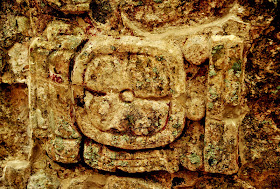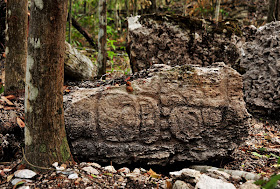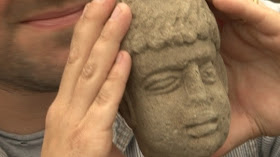by Stephen D. Foster Jr
The separation of cult and state is one of the cornerstones of
America’s foundation. Wingnut christian fundamentalists have sought
to crush this cornerstone in the hopes of establishing christianity as
the state religion, an action that would threaten the rest of the
foundation that makes up the Constitution. These conservatives contend
that the Founding Fathers dreamed of making America a Christian state at
the expense of those who practice other religions or none at all.
So here are 35
quotes from the Founding Fathers. Perhaps your first thoughts are the
first four Presidents and maybe Benjamin Franklin, but there were many
other Founding Fathers. Many were signers of the Constitution and The
Declaration of Independence. They were lawyers, judges, soldiers,
merchants, farmers, and some were even clergy. And the great majority of
them signed the Constitution knowing that matters of government and
matters of religion would be separate.
1. “If I could conceive that the general government might ever be so
administered as to render the liberty of conscience insecure, I beg you
will be persuaded, that no one would be more zealous than myself to
establish effectual barriers against the horrors of spiritual tyranny,
and every species of religious persecution.”
~George Washington, letter to the United Baptist Chamber of Virginia, May 1789
2. “Of all the animosities which have existed among mankind, those which
are caused by a difference of sentiments in religion appear to be the
most inveterate and distressing, and ought to be deprecated. I was in
hopes that the enlightened and liberal policy, which has marked the
present age, would at least have reconciled Christians of every
denomination so far that we should never again see the religious
disputes carried to such a pitch as to endanger the peace of society.”
~George Washington, letter to Edward Newenham, October 20, 1792
3. “We have abundant reason to rejoice that in this Land the light of
truth and reason has triumphed over the power of bigotry and
superstition… In this enlightened Age and in this Land of equal liberty
it is our boast, that a man’s religious tenets will not forfeit the
protection of the Laws, nor deprive him of the right of attaining and
holding the highest Offices that are known in the United States.”
~George Washington, letter to the members of the New Church in Baltimore, January 27, 1793
4. “The United States of America have exhibited, perhaps, the first
example of governments erected on the simple principles of nature; and
if men are now sufficiently enlightened to disabuse themselves of
artifice, imposture, hypocrisy, and superstition, they will consider
this event as an era in their history. Although the detail of the
formation of the American governments is at present little known or
regarded either in Europe or in America, it may hereafter become an
object of curiosity. It will never be pretended that any persons
employed in that service had interviews with the gods, or were in any
degree under the influence of Heaven, more than those at work upon ships
or houses, or laboring in merchandise or agriculture; it will forever
be acknowledged that these governments were contrived merely by the use
of reason and the senses.”
~John Adams, “A Defence of the Constitutions of Government of the United States of America” 1787-1788
5. “The Government of the United States of America is not in any sense founded on the Christian religion.”
~1797 Treaty of Tripoli signed by John Adams
6. “Thirteen governments [of the original states] thus founded on the
natural authority of the people alone, without a pretence of miracle or
mystery, and which are destined to spread over the northern part of
that whole quarter of the globe, are a great point gained in favor of
the rights of mankind.”
~John Adams, “A Defence of the Constitutions of Government of the United States of America” (1787-88)
7. “We should begin by setting conscience free. When all men of all
religions shall enjoy equal liberty, property, and an equal chance for
honors and power we may expect that improvements will be made in the human character and the state of society.”
~John Adams, letter to Dr. Price, April 8, 1785
8. “I contemplate with sovereign reverence that act of the whole
American people which declared that their legislature should make no law
respecting an establishment of religion, or prohibit the free exercise
thereof, thus building a wall of separation between church and state.”
~Thomas Jefferson, letter to the Baptists of Danbury, Connecticut, 1802
9. “In every country and in every age, the priest has been hostile to
liberty. He is always in alliance with the despot, abetting his abuses
in return for protection to his own. It is error alone that needs the
support of government. Truth can stand by itself.”
~Thomas Jefferson, in a letter to Horatio Spofford, 1814
10. “Question with boldness even the existence of a God; because, if
there be one, he must more approve of the homage of reason, then that of
blindfolded fear.”
~Thomas Jefferson, letter to Peter Carr, August 10, 1787
11. “I am for freedom of religion and against all maneuvers to bring about a legal ascendancy of one sect over another.”
~Thomas Jefferson, letter to Elbridge Gerry, January 26, 1799
12. “History, I believe, furnishes no example of a priest-ridden
people maintaining a free civil government. This marks the lowest grade
of ignorance of which their civil as well as religious leaders will
always avail themselves for their own purposes.”
-Thomas Jefferson: in letter to Alexander von Humboldt, December 6, 1813
13. “Because religious belief, or non-belief, is such an important
part of every person’s life, freedom of religion affects every
individual.
State churches that use government power to support themselves and force
their views on persons of other faiths undermine all our civil rights.
Moreover, state support of the church tends to make the clergy
unresponsive to the people and leads to corruption within religion.
Erecting the “wall of separation between church and state,” therefore,
is absolutely essential in a free society. We have solved … the great
and interesting question whether freedom of religion is compatible with
order in government and obedience to the laws. And we have experienced
the quiet as well as the comfort which results from leaving every one to
profess freely and openly those principles of religion which are the
inductions of his own reason and the serious convictions of his own
inquiries.”
~Thomas Jefferson: in a speech to the Virginia Baptists, 1808
14. “Christianity neither is, nor ever was a part of the common law.”
~Thomas Jefferson, letter to Dr. Thomas Cooper, February 10, 1814,
15. “The civil government functions with complete success by the total separation of the Church from the State.”
~James Madison, 1819, Writings, 8:432, quoted from Gene Garman, “Essays In Addition to America’s Real Religion”
16. “And I have no doubt that every new example will succeed, as
every past one has done, in shewing that religion & Govt will both
exist in greater purity, the less they are mixed together.”
~James Madison, letter to Edward Livingston, July 10, 1822
17. “Every new and successful example of a perfect separation between ecclesiastical and civil matters is of importance.”
~James Madison, letter, 1822
18. “Strongly guarded as is the separation between Religion and
Government in the Constitution of the United States, the danger of
encroachment by Ecclesiastical Bodies, may be illustrated by precedents
already furnished in their short history.”
~James Madison; Monopolies, Perpetuities, Corporations, Ecclesiastical
Endowments
19. “It is only when the people become ignorant and corrupt, when
they degenerate into a populace, that they are incapable of exercising
the sovereignty. Usurpation is then an easy attainment, and an usurper
soon found. The people themselves become the willing instruments of
their own debasement and ruin. Let us, then, look to the great cause,
and endeavor to preserve it in full force. Let us by all wise and
constitutional measures promote intelligence among the people as the
best means of preserving our liberties.”
~James Monroe, First Inaugural Address, March 4, 1817
20. “When a religion is good, I conceive it will support itself; and
when it does not support itself, and God does not take care to support
it so that its professors are obligated to call for help of the civil
power, it’s a sign, I apprehend, of its being a bad one.”
~Benjamin Franklin, letter to Richard Price, October 9, 1780
21. “Manufacturers, who listening to the powerful invitations of a
better price for their fabrics, or their labor, of greater cheapness of
provisions and raw materials, of an exemption from the chief part of the
taxes burdens and restraints, which they endure in the old world, of
greater personal independence and consequence, under the operation of a
more equal government, and of what is far more precious than mere
religious toleration–a perfect equality of religious privileges; would
probably flock from Europe to the United States to pursue their own
trades or professions, if they were once made sensible of the advantages
they would enjoy, and were inspired with an assurance of encouragement
and employment, will, with difficulty, be induced to transplant
themselves, with a view to becoming cultivators of the land.”
~Alexander Hamilton: Report on the Subject of Manufacturers December 5,
1791
22. “In regard to religion, mutual toleration in the different
professions thereof is what all good and candid minds in all ages have
ever practiced, and both by precept and example inculcated on mankind.”
~Samuel Adams, The Rights of the Colonists (1771)
23. “That religion, or the duty which we owe to our Creator, and the
manner of discharging it, can be directed only by reason and conviction,
not by force or violence; and therefore all men are equally entitled to
the free exercise of religion, according to the dictates of conscience;
and that it is the mutual duty of all to practice Christian
forebearance, love, and charity towards each other.”
~George Mason, Virginia Bill of Rights, 1776
24. “It is contrary to the principles of reason and justice that any
should be compelled to contribute to the maintenance of a church with
which their consciences will not permit them to join, and from which
they can derive no benefit; for remedy whereof, and that equal liberty
as well religious as civil, may be universally extended to all the good
people of this commonwealth.”
~George Mason, Virginia Declaration of Rights, 1776
25. “A man of abilities and character, of any sect whatever, may be
admitted to any office or public trust under the United States. I am a
friend to a variety of sects, because they keep one another in order.
How many different sects are we composed of throughout the United
States? How many different sects will be in congress? We cannot
enumerate the sects that may be in congress. And there are so many now
in the United States that they will prevent the establishment of any one
sect in prejudice to the rest, and will forever oppose all attempts to
infringe religious liberty. If such an attempt be made, will not the
alarm be sounded throughout America? If congress be as wicked as we are
foretold they will, they would not run the risk of exciting the
resentment of all, or most of the religious sects in America.”
~Edmund Randolph, address to the Virginia Ratifying Convention, June
10, 1788
26. “I never liked the Hierarchy of the Church — an equality in the
teacher of Religion, and a dependence on the people, are republican
sentiments — but if the Clergy combine, they will have their influence
on Government”
~Rufus King, Rufus King: American Federalist, pp. 56-57
27. A general toleration of Religion appears to me the best means of
peopling our country… The free exercise of religion hath stocked the
Northern part of the continent with inhabitants; and altho’ Europe hath
in great measure adopted a more moderate policy, yet the profession of
Protestantism is extremely inconvenient in many places there. A
Calvinist, a Lutheran, or Quaker, who hath felt these inconveniences in
Europe, sails not to Virginia, where they are felt perhaps in a (greater
degree).”
~Patrick Henry, observing that immigrants flock to places where there is no established religion, Religious Tolerance, 1766
28. “No religious doctrine shall be established by law.”
~Elbridge Gerry, Annals of Congress 1:729-731
29. “Knowledge and liberty are so prevalent in this country, that I
do not believe that the United States would ever be disposed to
establish one religious sect, and lay all others under legal
disabilities. But as we know not what may take place hereafter, and any
such test would be exceedingly injurious to the rights of free citizens,
I cannot think it altogether superfluous to have added a clause, which
secures us from the possibility of such oppression.”
~Oliver Wolcott, Connecticut Ratifying Convention, 9 January 1788
30. “Some very worthy persons, who have not had great advantages for
information, have objected against that clause in the constitution
which provides, that no religious test shall ever be required as a
qualification to any office or public trust under the United States.
They have been afraid that this clause is unfavorable to religion. But
my countrymen, the sole purpose and effect of it is to exclude
persecution, and to secure to you the important right of religious
liberty. We are almost the only people in the world, who have a full
enjoyment of this important right of human nature. In our country every
man has a right to worship God in that way which is most agreeable to
his conscience. If he be a good and peaceable person he is liable to no
penalties or incapacities on account of his religious sentiments; or in
other words, he is not subject to persecution. But in other parts of the
world, it has been, and still is, far different. Systems of religious
error have been adopted, in times of ignorance. It has been the interest
of tyrannical kings, popes, and prelates, to maintain these errors.
When the clouds of ignorance began to vanish, and the people grew more
enlightened, there was no other way to keep them in error, but to
prohibit their altering their religious opinions by severe persecuting
laws. In this way persecution became general throughout Europe.”
~Oliver Ellsworth, Philip B Kurland and Ralph Lerner (eds.), The
Founder’s Constitution, University of Chicago Press, 1987, Vol. 4, p.
638
31. “Persecution is not an original feature in any religion; but it
is always the strongly marked feature of all religions established by
law. Take away the law-establishment, and every religion re-assumes its
original benignity.”
~Thomas Paine, The Rights of Man, 1791
32. “God has appointed two kinds of government in the world, which
are distinct in their nature, and ought never to be confounded together;
one of which is called civil, the other ecclesiastical government.”
~Isaac Backus, An Appeal to the Public for Religious Liberty, 1773
33. “Congress has no power to make any religious establishments.”
~Roger Sherman, Congress, August 19, 1789
34. “The American states have gone far in assisting the progress of
truth; but they have stopped short of perfection. They ought to have
given every honest citizen an equal right to enjoy his religion and an
equal title to all civil emoluments, without obliging him to tell his
religion. Every interference of the civil power in regulating opinion,
is an impious attempt to take the business of the Deity out of his own
hands; and every preference given to any religious denomination, is so
far slavery and bigotry.”
~Noah Webster, calling for no religious tests to serve in public office, Sketches of American Policy, 1785
35. “The legislature of the United States shall pass no law on the subject of religion.”
~Charles Pinckney, Constitutional Convention, 1787
These are hardly the words of men who allegedly believed that America
should be a christian nation governed by the bible as wingnuts
constantly claim. On the contrary, the great majority of the Founders
believed strongly in separation of cult and state. So, keep in mind that this country has survived for over two centuries
under the principle of separation and it is only now when wingnuts
are attempting to destroy that very cornerstone that we find America
becoming ever more divided and more politically charged than ever
before. If this wingnut faction has their way, America as we know it
will cease to exist and the freedoms we have enjoyed because of the
Constitution will erode. The Founding Fathers had a vision of this
nation and trusted that the people would protect that vision and improve
upon it. Now is not the time to fail them. Because the day the people
fail, so does America.




 Jason
Everman had the honor of being hired and fired from not just one, but
two famous bands. After drifting for a while with other bands, he
enlisted in the Army:
Jason
Everman had the honor of being hired and fired from not just one, but
two famous bands. After drifting for a while with other bands, he
enlisted in the Army:







 According
to Idibon, a company that makes language processing applications, these
are the weirdest languages on different continents:
According
to Idibon, a company that makes language processing applications, these
are the weirdest languages on different continents:















